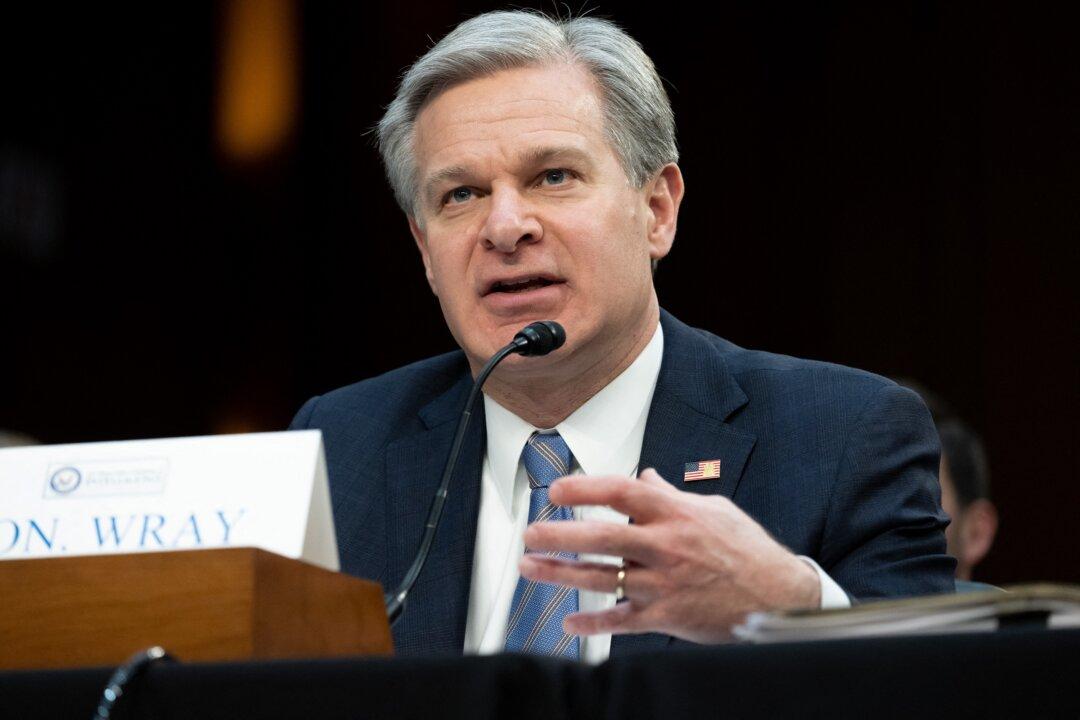FBI Director Christopher Wray said Thursday that hackers linked to the Chinese Communist Party (CCP) have infiltrated America’s critical infrastructure and are biding their time as they wait for the right moment to strike a “devastating blow.”
Mr. Wray said in an April 18 speech at Vanderbilt University in Nashville, Tennessee, that the threats posed by China-sponsored hackers are no longer a matter that’s over the horizon but that “they’re upon us now.”





